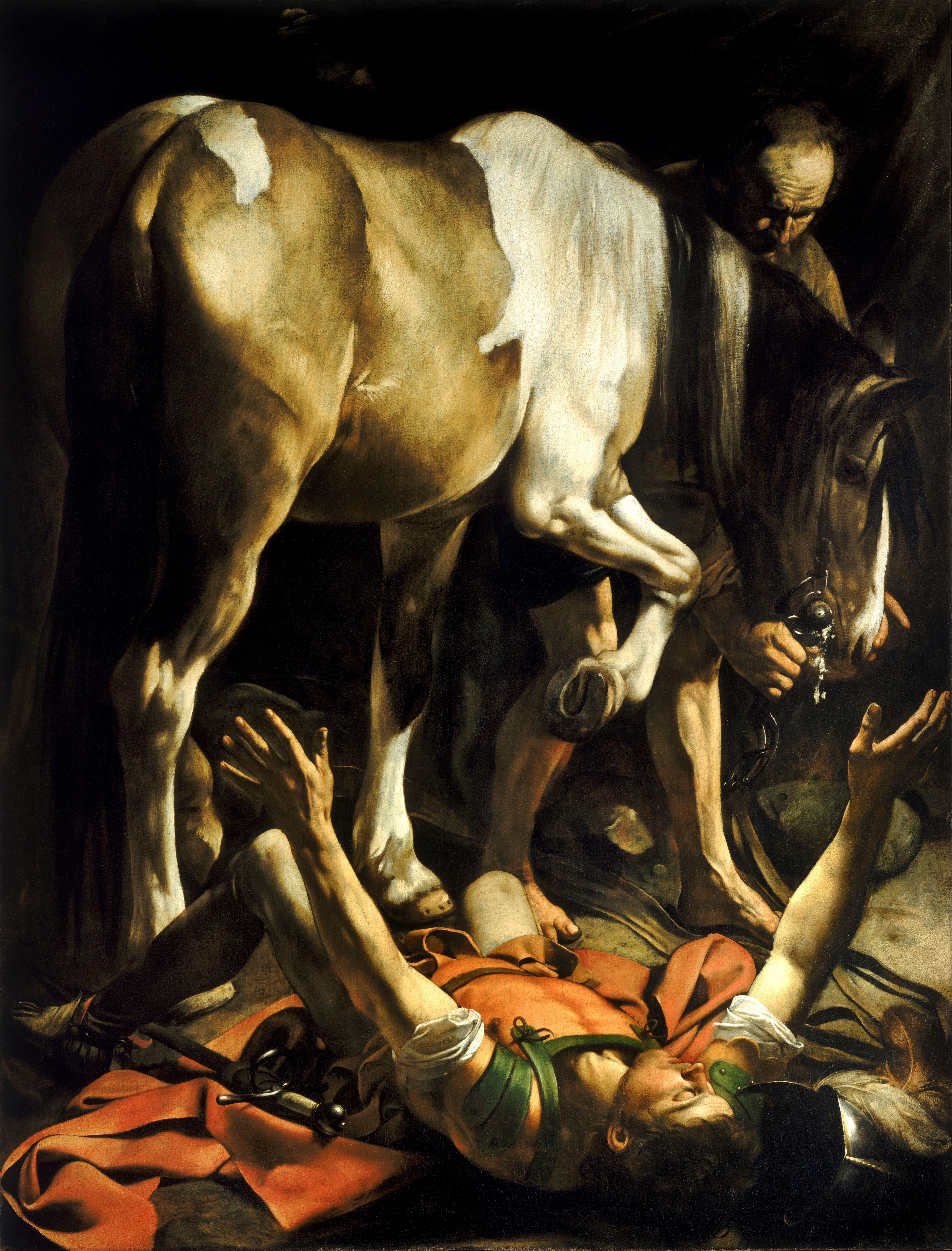Where is my Damascus moment?
25th January 2024

As he is on the road to Damascus, God intervenes dramatically in St Paul’s life. It might make one wonder: where is the dramatic divine intervention in my own life?

Reading: Acts 22:3-16
The following homily was preached during compline. You can listen here or read below:
The feast we celebrate today is the conversion of St Paul. And the story we have just heard recounts precisely that event. St Paul is on the road to Damascus. A great light appears from heaven, he falls to the ground, and a voice speaks aloud saying “Saul, Saul, why are you persecuting me?”, and from that moment on Paul’s life is not the same again. His whole life changes. Throughout St Paul’s letters it is easy to trace the origin of his convictions to this single encounter. “It is no longer I who live but Christ who lives in me”, he will write to the Galatians. This is the Christ who breaks into Paul’s life on the road to Damascus, definitively, unmistakably, dramatically.
This great story is utterly foundational to the proclamation of the Gospel, the moment which begins the mission of arguably the Church’s greatest apostle. But this great story might provoke a mixed reaction. I admit it has occasionally put a nagging thought at the back of my mind. Jealously is too strong a word, but there might be a bit of that.
When struggling with a particular spiritual question or faced with a difficult decision or confronting a doubt, one might ask: where is the bright light from heaven? Where is the voice that speaks aloud and tells me what to do? Where is my Damascus moment? Where is the dramatic intervention of God in my life?
With a little pause for thought it quickly becomes clear that actually this is an odd question. Could there be a more dramatic divine intervention, a more singularly astonishing sign of divine action, than for God himself to become man and walk the face of this earth? In the person of Jesus Christ, God broke into our world definitively and unmistakably. He came to us, so that we might be united with him. Any hope for more drama is surely to lose sight of what actually happened in the stable at Bethlehem and the events that followed 2000 years ago.
But still, one might say, couldn’t there be a bit more drama today, now? Again, a little pause for thought and this question loses its punch. The desire seems to be for sights and sounds, empirical contact with the God in whom we believe. But, to take just one example, is this not exactly what God gives us through his Church? Each day in Mass we hear the Word proclaimed, we hear the God who speaks. The Word of God is living and active: God speaks to you and to me whenever we break open the scriptures.
And each day in Mass too we are invited to receive Christ bodily. Aquinas beautifully points out that one reason why Christ is truly present in the Eucharist is charity: it is the special feature of friendship to be together with one’s friends, and so Christ does not deprive us of his bodily presence during our pilgrimage here on earth. In his great charity, he unites us to himself in the sacrament of the altar.
Where’s the dramatic intervention of God in my life? Well, the drama is there, if only we have eyes to see and ears to hear. With senses elevated by faith, is there any experience on earth more dramatic than what takes place each day at Mass?
Just one final thought: there is a particular way this feast of the Conversion of St Paul might help us build that faith which opens our eyes to God at work. The story we have just heard is in fact the second time it is told in Acts, and it will be told again a few chapters later. The same story appears on three separate occasions in a single book. It must have been a story St Paul drew on repeatedly during his preaching. And perhaps there’s a lesson in that for us: to learn to tell our own story. In doing just this, in articulating the moments that define our relationship with Christ, we too will begin to see the workings of grace more clearly.
St Peter wrote in his first letter: “be ready to give a defence to anyone asking you for the reason for the hope that is in you”. There is perhaps more divine drama than we realise in our lives. Whether it involves bright lights or not, God continues to act.
The image is Caravaggio’s ‘Conversion on the Way to Damascus’
The post Where is my Damascus moment? appeared first on The Dominican Friars in Britain.